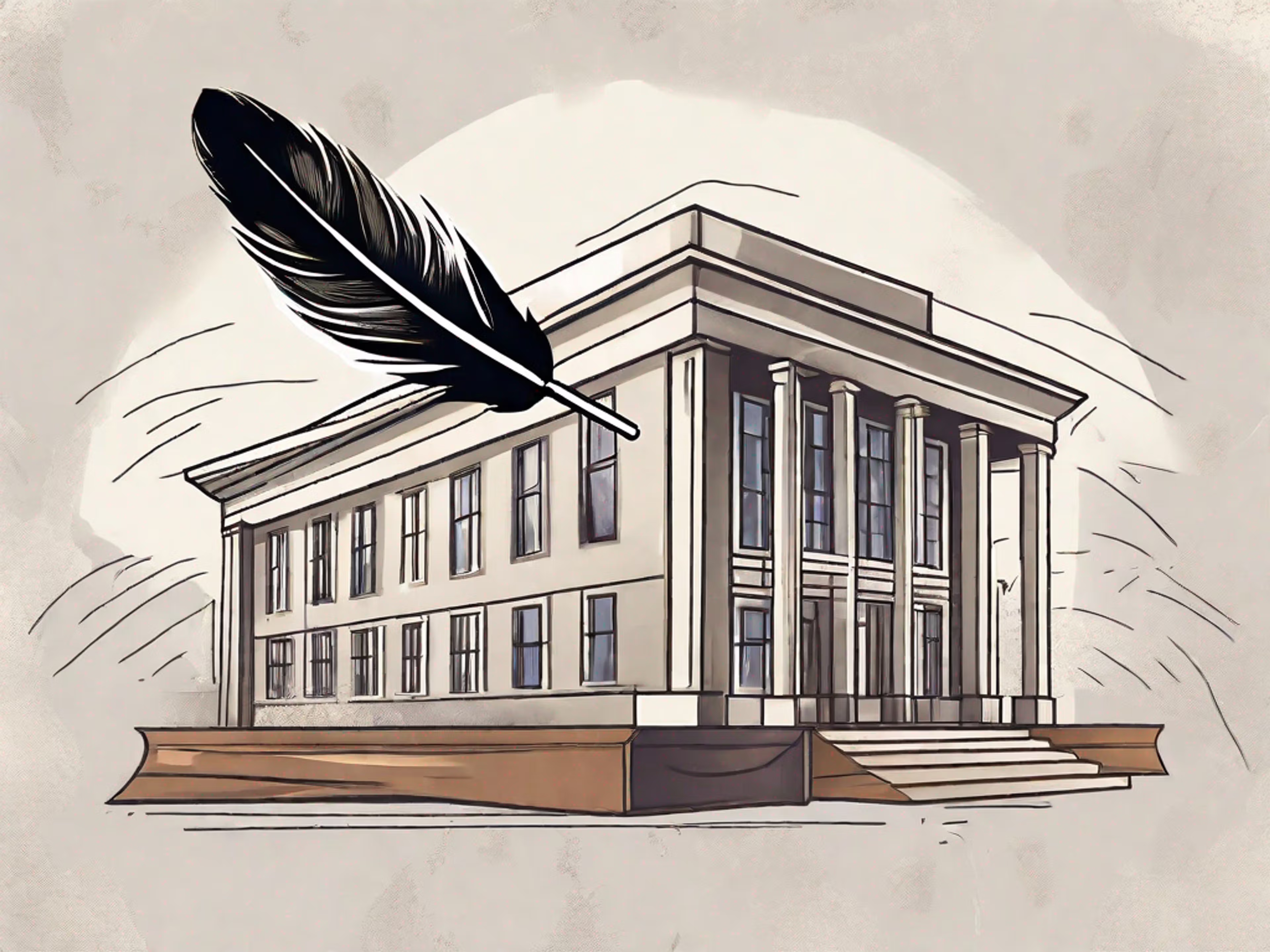Duke Fuqua MBA Letters of Recommendation Guide - Questions, Tips, & Examples
Looking for guidance on crafting standout letters of recommendation for your Duke Fuqua MBA application? This comprehensive guide provides insightful questions, helpful tips, and real-life examples to help you navigate the process with confidence and success.
Posted April 10, 2025

Table of Contents
Free Event

Featuring Melanie E.
How to Get a Head Start on Your MBA Application
Starting Wednesday, April 16
10:00 PM UTC · 60 minutes

Featuring Melanie E.
Duke Fuqua is renowned for its rigorous MBA program that prepares students for leadership roles in various industries. As part of the admission process, letters of recommendation play a crucial role in assessing a candidate's qualifications and potential for success in the program. In this comprehensive guide, we will delve into the details of the Duke Fuqua MBA letters of recommendation, including the questions asked, expert tips for writing powerful recommendation letters, and provide examples from successful admits. Whether you're a prospective applicant or someone considering recommending a candidate for the program, this guide will provide valuable insights.
Brief Intro to Duke Fuqua and The Role of Letters of Recommendation
Before we dive into the intricacies of recommendation letters, let's take a moment to understand Duke Fuqua and the significance of these letters in the admissions process. Duke Fuqua School of Business is known for its collaborative culture, emphasis on teamwork, and commitment to developing principled leaders. With a diverse and accomplished student body, the admissions committee relies on the insights provided by recommendation letters to assess an applicant's fit with the program's values and potential contribution to the Fuqua community.
Located in Durham, North Carolina, Duke Fuqua offers a wide range of programs, including the Full-Time MBA, Executive MBA, Weekend Executive MBA, Global Executive MBA, and Master of Management Studies. The school's strong reputation and global network make it a highly sought-after institution for aspiring business leaders.
Now, let's delve deeper into the role of recommendation letters. These letters serve as a way for the admissions committee to gain a more comprehensive understanding of an applicant's strengths, weaknesses, achievements, and leadership potential. They provide an external perspective on the candidate's abilities and character, offering valuable insights that go beyond what can be gleaned from a resume or academic transcripts alone.
When selecting recommenders, it is important for applicants to choose individuals who know them well and can speak to their qualifications and potential. Ideally, recommenders should be able to provide specific examples and anecdotes that highlight the applicant's skills, accomplishments, and personal qualities.
Furthermore, recommendation letters should not simply reiterate information already present in the application. Instead, they should provide additional context and depth, shedding light on the applicant's character, work ethic, and potential for growth. Admissions committees are particularly interested in hearing about instances where the applicant has demonstrated leadership, teamwork, initiative, and the ability to overcome challenges.
It is crucial for recommenders to craft thoughtful and compelling letters that highlight the applicant's unique qualities. They should provide specific examples and anecdotes that illustrate the applicant's strengths and potential for success. Additionally, recommenders should avoid generic statements and instead focus on providing specific and detailed assessments of the applicant's abilities.
Overall, recommendation letters play a vital role in the admissions process at Duke Fuqua. They provide the admissions committee with valuable insights into an applicant's character, potential, and fit with the program's values. As applicants, it is important to carefully select recommenders who can provide a comprehensive and compelling assessment of our abilities, ensuring that our application stands out among the many others received by the admissions committee.
Duke Fuqua Recommender Questions (2023-2024)
Now that we understand the importance of recommendation letters, let's explore the specific questions that Duke Fuqua asks recommenders for the 2023-2024 application cycle. These questions aim to gather detailed information about the applicant and their qualifications, enabling the admissions committee to make well-informed decisions.
- How long have you known the applicant and in what capacity?
- What are the applicant's key strengths and areas for improvement?
- How does the applicant's performance compare to others in similar roles?
- How does the applicant contribute to a team or group dynamic?
- Can you provide an example of the applicant's leadership abilities?
- How does the applicant handle feedback and adversity?
- Do you think the applicant is ready for the challenges of the Duke Fuqua MBA program?
- Please add any additional comments that will help the admissions committee in evaluating this candidate.
These questions cover various aspects of the applicant's professional and personal attributes, leadership potential, teamwork skills, and resilience, offering a holistic view of their candidacy.
Let's delve deeper into each of these questions to understand why Duke Fuqua values the information they provide:
- How long have you known the applicant and in what capacity?
This question allows the recommender to provide context regarding the duration and nature of their relationship with the applicant. By knowing the length of the association, the admissions committee can assess the recommender's level of familiarity with the applicant's abilities and achievements.
- What are the applicant's key strengths and areas for improvement?
Duke Fuqua seeks to understand the applicant's strengths and areas for improvement to gain insights into their overall profile. Identifying key strengths helps the admissions committee assess the applicant's potential contributions to the program and the business community. Additionally, understanding areas for improvement allows the committee to evaluate the applicant's self-awareness and willingness to grow.
- How does the applicant's performance compare to others in similar roles?
By comparing the applicant's performance to others in similar roles, Duke Fuqua aims to gauge their relative achievements and potential. This question helps the admissions committee understand the applicant's competitiveness and ability to excel in their field.
- How does the applicant contribute to a team or group dynamic?
Teamwork is a crucial aspect of the Duke Fuqua MBA program. This question allows the recommender to shed light on the applicant's ability to collaborate effectively, communicate ideas, and contribute positively to group dynamics. Understanding an applicant's teamwork skills helps the admissions committee assess their potential to thrive in a collaborative environment.
- Can you provide an example of the applicant's leadership abilities?
Leadership is highly valued at Duke Fuqua, and this question enables the recommender to provide specific examples of the applicant's leadership skills. By understanding the applicant's leadership style, impact, and ability to inspire others, the admissions committee can evaluate their potential to make a meaningful difference in their future endeavors.
- How does the applicant handle feedback and adversity?
Duke Fuqua seeks individuals who can effectively navigate challenges and grow from feedback. This question allows the recommender to provide insights into the applicant's resilience, adaptability, and ability to learn from setbacks. Understanding how the applicant handles feedback and adversity helps the admissions committee assess their potential to thrive in a rigorous academic and professional environment.
- Do you think the applicant is ready for the challenges of the Duke Fuqua MBA program?
This question allows the recommender to provide an overall assessment of the applicant's readiness for the Duke Fuqua MBA program. By considering the applicant's skills, experiences, and potential, the recommender can offer valuable insights into the applicant's preparedness to excel in the program.
- Please add any additional comments that will help the admissions committee in evaluating this candidate.
This open-ended question provides the recommender with an opportunity to share any additional information that they believe is relevant to the applicant's candidacy. It allows the recommender to highlight unique qualities, experiences, or achievements that may not have been covered in the previous questions.
By asking these comprehensive questions, Duke Fuqua aims to gather a holistic view of each applicant, considering their strengths, areas for improvement, leadership potential, teamwork skills, and ability to handle challenges. This thorough evaluation process helps the admissions committee select candidates who align with the values and objectives of the Duke Fuqua MBA program.
Expert Tips for Powerful Duke Fuqua Recommendation Letters
To ensure your recommendation letter stands out and effectively portrays the applicant's qualifications, consider the following expert tips:
- Start by building a strong rapport with the applicant to gain a deep understanding of their goals and experiences.
- Showcase specific examples that highlight the applicant's achievements, skills, and character traits.
- Provide concrete evidence and quantifiable results whenever possible to substantiate your claims.
- Highlight the applicant's teamwork, leadership, and communication skills, as these are highly valued at Duke Fuqua.
- Address any areas for improvement honestly, but always focus on their potential for growth.
- Avoid generic and clichéd statements, personalized anecdotes and insights are much more impactful.
- Proofread your letter for clarity, coherence, and grammar errors before submission.
By following these tips, you can craft a compelling recommendation letter that effectively advocates for the applicant's admission to Duke Fuqua's MBA program.
Example Fuqua Letters of Recommendation From Successful Admits
Now, let's explore examples of recommendation letters that impressed the admissions committee and contributed to the success of previous applicants. These excerpts provide valuable insights into the elements that make a recommendation letter memorable and persuasive.
Excerpt 1: "[Applicant's Name] consistently demonstrated exceptional leadership abilities during our time working together. Their ability to motivate and inspire a team, even in challenging circumstances, is truly impressive. One particular example comes to mind when [provide specific example]..."
Excerpt 2: "I have had the pleasure of mentoring [Applicant's Name] for the past three years and have witnessed their tremendous growth and development firsthand. From the moment they joined our organization, it was evident that they possessed the unique blend of talent, determination, and humility that sets them apart from their peers..."
These examples showcase the power of specific anecdotes and personalized insights, allowing the admissions committee to form a vivid picture of the applicant's qualities and potential.
Duke Fuqua Letters of Recommendation FAQs
Now that we have covered the essential aspects of Duke Fuqua's MBA letters of recommendation, let's address some commonly asked questions:
Q: How many recommendation letters are required for Duke Fuqua's MBA application?
A: Duke Fuqua requires applicants to submit two recommendation letters.
Q: Can family members or friends write recommendation letters?
A: It is preferred that recommendation letters come from individuals who have directly supervised the applicant in a professional or academic setting.
Q: Is it advisable to provide the recommenders with a template or guidance?
A: While it is considered acceptable to discuss the applicant's strengths and goals with recommenders, it is crucial to allow them the freedom to provide an authentic and personalized perspective.
By addressing these frequently asked questions, we hope to provide clarity and guidance to both applicants and recommenders navigating the Duke Fuqua MBA letters of recommendation process.
Conclusion
Letters of recommendation hold significant weight in the Duke Fuqua MBA admissions process, offering a unique perspective on an applicant's qualifications and fit with the program's values. By understanding the purpose of recommendation letters, familiarizing yourself with the question prompts, implementing expert tips, and exploring examples from successful admits, you can effectively contribute to the applicant's candidacy. Whether you are an applicant or a recommender, this guide equips you with the knowledge and insights necessary to navigate the Duke Fuqua MBA letters of recommendation process with confidence.











